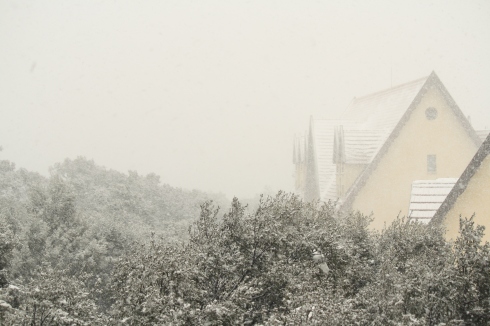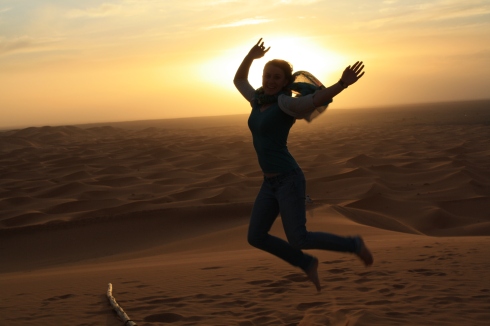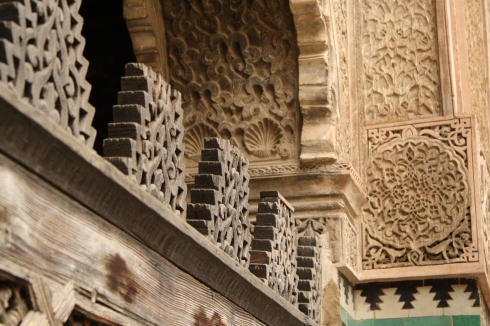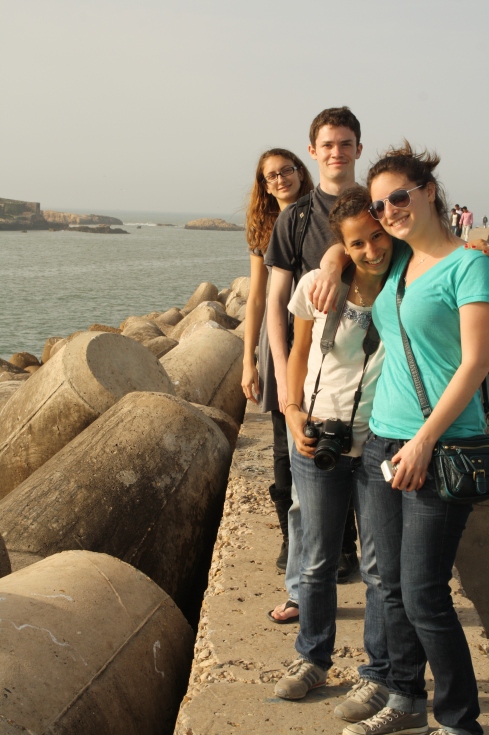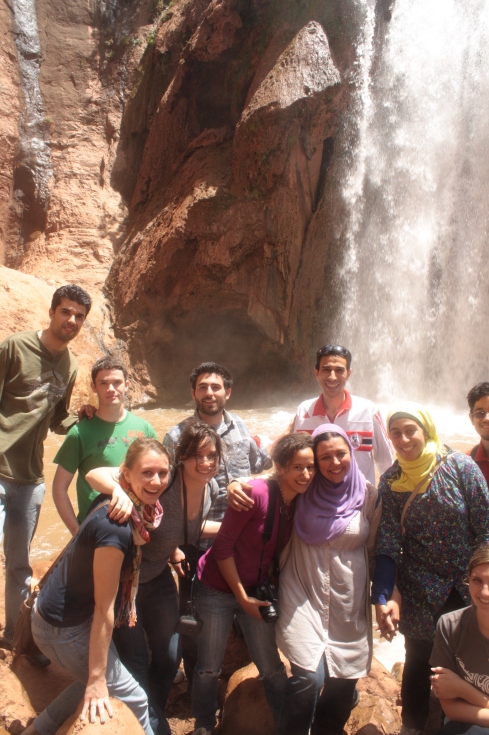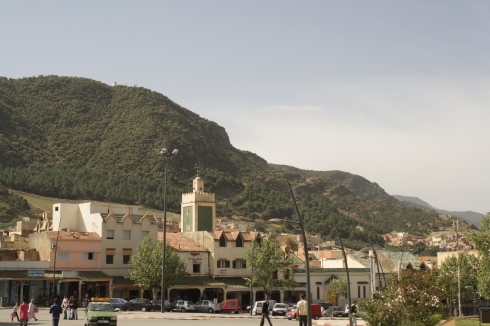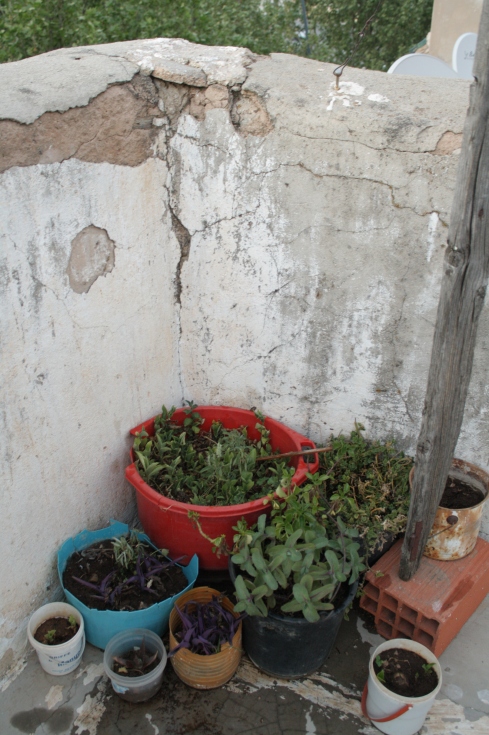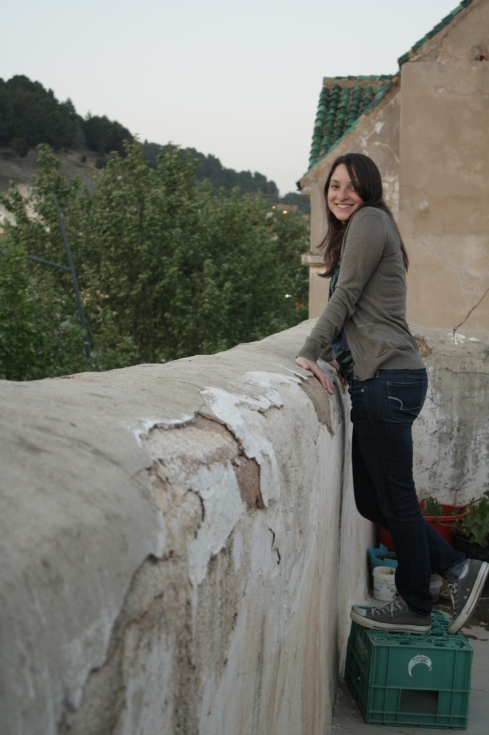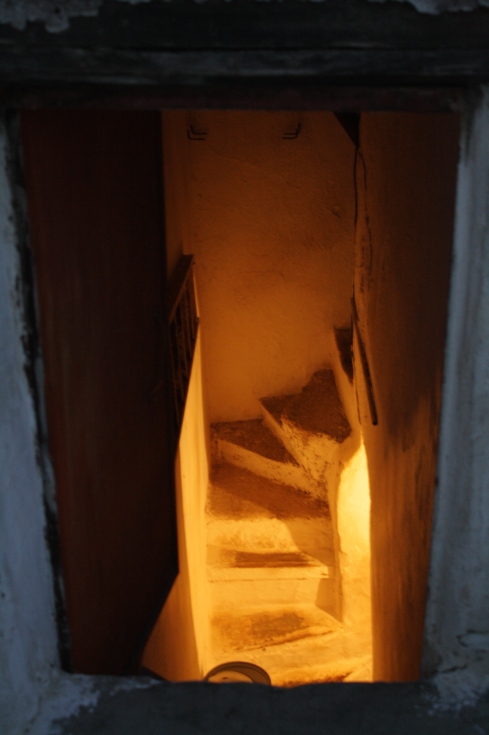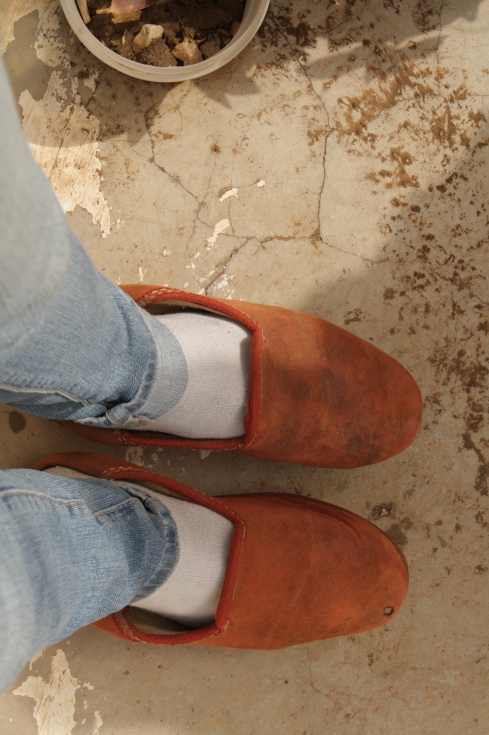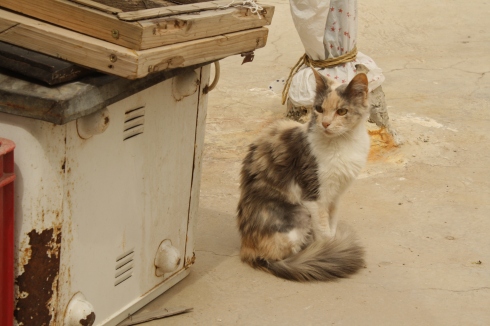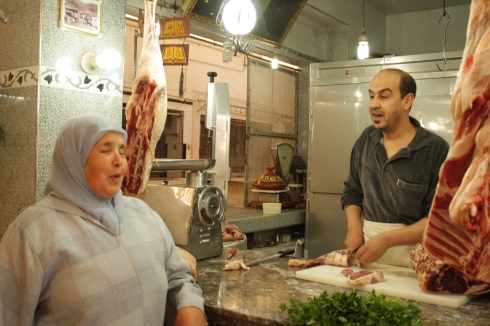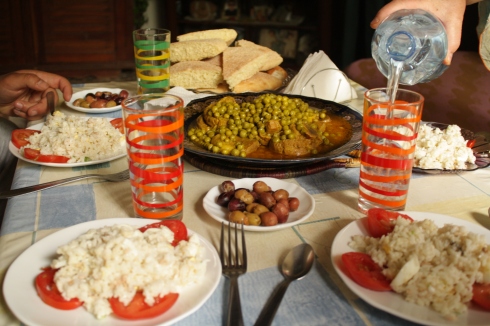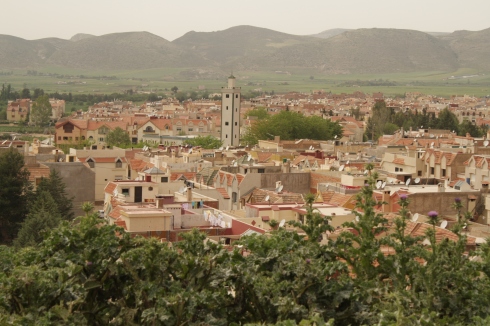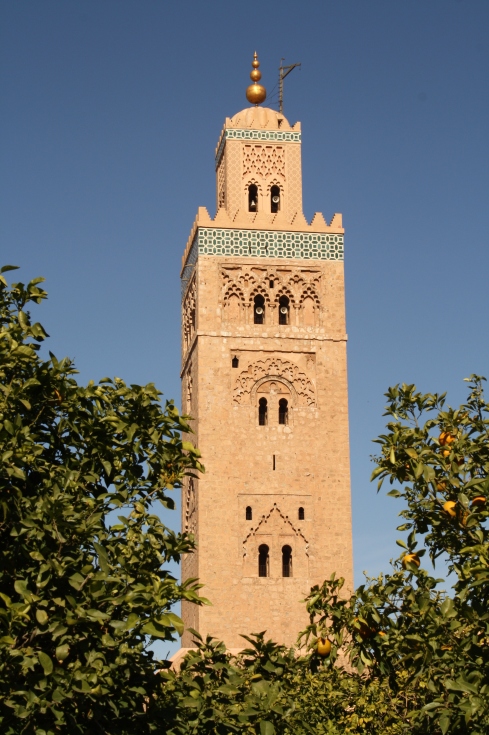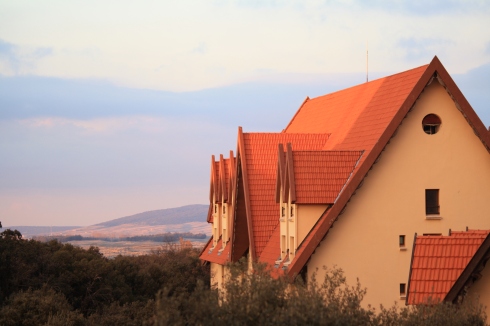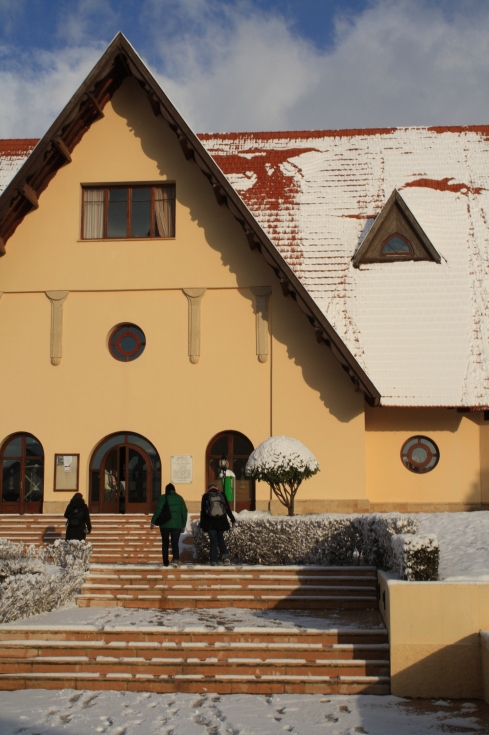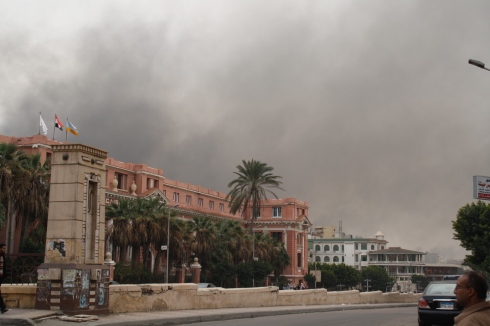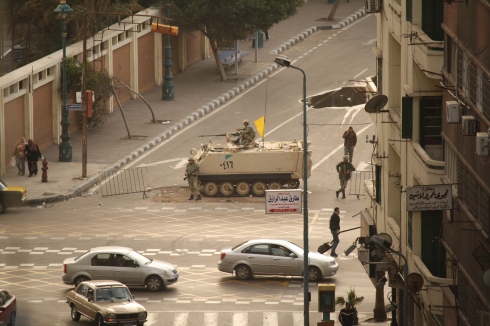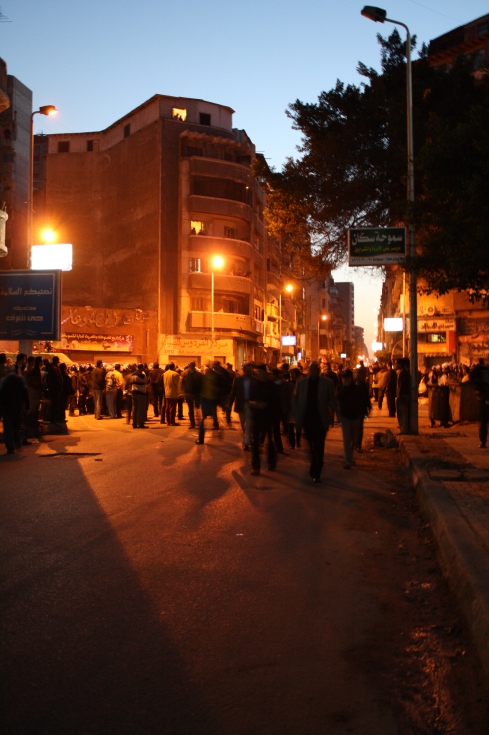When applying to this 9-month intensive Arabic study program, I knew that our funding would not cover travel expenses for return visits to the US, so I decided to try to stick it out on this side of the Atlantic for the entire duration of the program. I knew the hardest parts would be Thanksgiving and Christmas–it can be tough sometimes having the best family in the world!–but we all did our best as a little Flagship family to be there for each other during the holidays. Thanksgiving was a smashing success…we had a pot luck dinner all together at our RD Andrew’s apartment in Shatby, with everyone contributing their favorite traditions from home. There were about 30 people and sooooo much food! I spent the whole day cooking with Nada, Fatima, Monica, and Mae, and we produced about 12 dishes between the five of us! I made two of my family favorites, mashed potatoes and baklava! YUM.

Mae and I celebrated our Catholic family traditions–Advent and St. Nicholas’ Day–with a teeny advent wreath made out of tin foil, and Clementines and sweets in our shoes! And for Christmas itself we finally had a week-long break, so Mae, Alberto, Jordan and I planned an ADVENTURE. The planning itself even turned out to be an adventure, but because of mishaps like our original flight getting cancelled, we ended up with a 13-day trip, much longer than we had expected, and were able to work things out that we didn’t even have to use any unexcused absences from class! Don’t as me how that happened, but al-hamdulilah it worked out great.

December 21st I finally turned in my last paper on the teaching of critical thinking in the Egyptian and United States education systems, and we set off for the WEST. We landed in Casablanca, Morocco at around 3am, found our hostel, and the next thing we knew we were waking up to Moroccan mint tea and cornbread. The first thing on the menu for the day was to purchase a guide book. We got a little lost finding a bookstore that had one in English, and only ended up finding an edition from 2007, but we sure were glad to have it the rest of the trip! That first day we learned that Moroccan cities are often divided into the walled “medina qadiima” or old city, and the developed “medina jediida” or new city. We explored both during our time in Casablanca, and were smacked in the face with the reality of the Arabic language. Or, should I say, languages? Modern Standard Arabic, which is what most students of Arabic typically start with, is exactly what it sounds like. The modern version of the standardized classical Arabic that can be found in the Quran and other ancient texts. This Arabic has stayed fairly true to its original form over the many centuries of its use because of the significance of these texts, and the mathematical specificity of its grammatical canon. The Arabic that is spoken in any Arabic-speaking country, however, is completely different, in terms of pronunciation, grammar, and influence from colonizing or nearby countries’ languages. I’m studying in Egypt, and therefore speak Arabic like Egyptians do. That means I pronounce my “jiim” like “geem,” drop the “qaaf” completely out of words, and use Masry sayings like “mashy,” (okey dokey) “izayyak,” (how are ya?) and am always feeling “miyya miyya” (A hundred percent). In Morocco, this turned out to be a complete novelty for the Moroccans we interacted with, as Egypt is kind of like the Hollywood of the Middle East, and most of the widely watched movies, tv, and music that have spread throughout the region originate in Egypt. “HA!” the shop owners would guffaw, “They speak like the soap operas!” They would joke with us about ful medames and falafel, and sometimes occasionally would ask us to pay in Egyptian ginay.
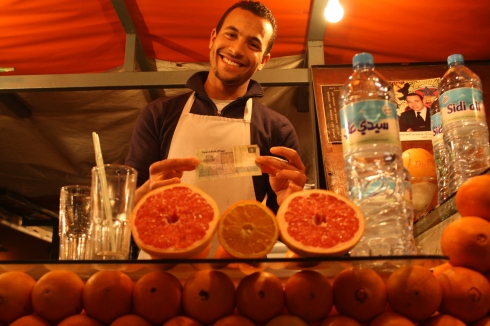
So, we were most of the time well-understood and were known as those strange Egyptians that don’t all look completely Egyptian. Of course, that didn’t mean we understood them. French is spoken in Morocco almost as much as Arabic, and because we look foreign, we would often get spoken to initially in French. Sorry…no French, can I get that again, in Arabic? But the Arabic was almost as bad. The Moroccan dialect is so strongly influenced by French and Spanish that sometimes I couldn’t tell whether it even WAS Arabic! We ended up doing a lot of communicating in Modern Standard, with those who could speak it, and having to ask for a lot of repetitions and explanations with those who did not. We learned some cool and useful Moroccan phrases though, and by the end were getting by pretty well!
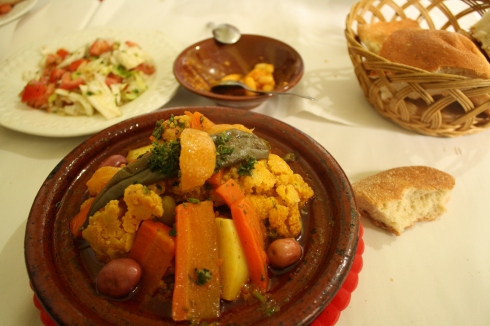
I was surprised by how different Morocco was from Egypt, and how developed Casablanca seemed compared to Cairo. Maybe it is because of the separation between the old and new cities, and the easy passage between the two lifestyles, that there is not a lot of the jumbled mix between the two that you can see in Egypt. Casablanca’s new city reminded us of Washington, DC, with wide streets and white buildings. We had our first Tajines, Moroccan medley of meat and veggies, slow-cooked over a charcoal stove in a clay cone-shaped pot, and went to visit a big cathedral, only to discover that it had been gutted and turned into a children’s art workshop. We paid the guard for tickets to visit the bell tower, and climbed up flights of pigeon-poopy stairs to find that what we had just paid a dollar for was actually a free pass to climb around on the roof of the huge cathedral, and catch some gusty views of the city. Sweet.
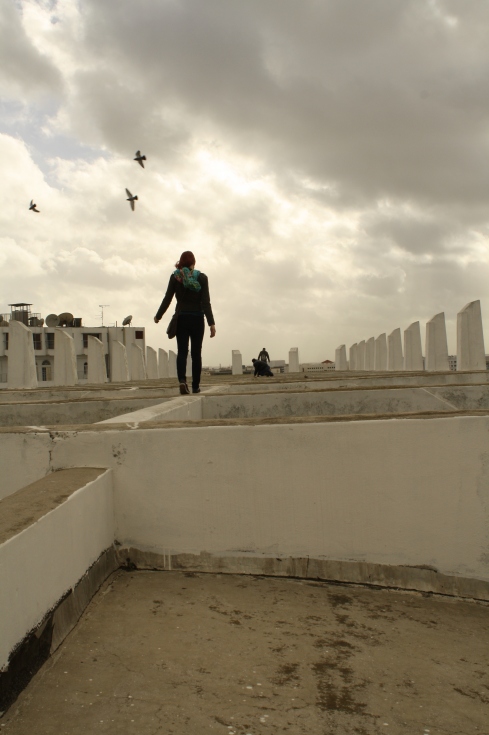
We also visited the fifth-largest mosque in the WORLD, after those in Mecca and Medina, built by the previous king of Morocco. The gargantuan indoor prayer space can fit 25,000 people, with room for an additional 80,000 in the outdoor courtyard. In addition to gorgeous intricate traditional carved cedar and colorful mosaic designs, this mosque is tricked out with modern conveniences, including heated floors and a sun roof. No joke! The enormous cedar and gold ceiling panels, that each weigh about a gazillion tons, slide open in just three minutes with what must be a HUGE electric motor. (Sounds like a project my neighbor Mr. Dan would undertake!)



Our next stop was Tangier, so we hopped onto a train and sat Harry Potter-style in compartments with a snack cart that went down the hall every once in a while. No Chocolate Frogs, unfortunately. I was shocked at how GREEN Morocco was! Neatly organized sloping fields with grazing cows and sheep reminded me more of Pennsylvania than the desert I had been picturing. Water! What a luxury.
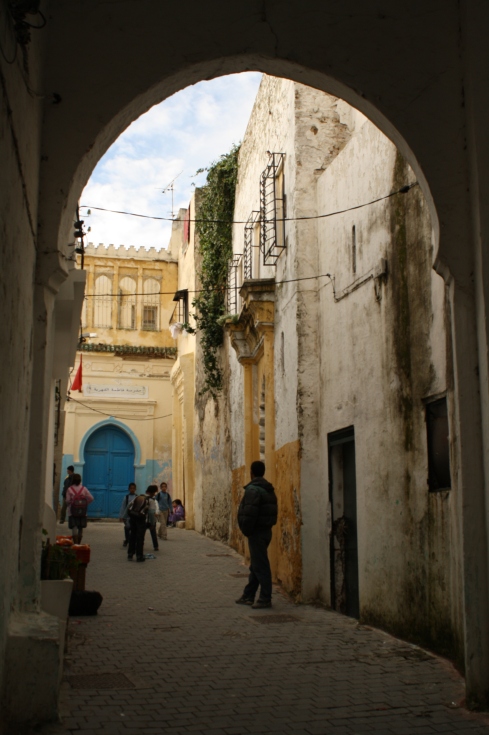
We spent Christmas eve walking around the old medina of Tangier, wandering the steeply-sloping streets in search of Cafe Hafa, where we spent the afternoon sipping mint tea on a cliff-top, watching ships go through the Straits of Gibralter and looking across to Spain! Afterwards we boarded a late bus and took off for the mountains.
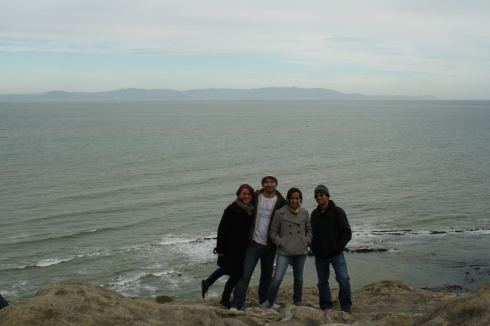
Chefchaoen was a bizarre but beautiful place to spend Christmas. We arrived just before midnight, and I set up a tiny Christmas tree and we all read A Charlie Brown Christmas out loud before falling asleep. We woke up to blue. Chefchaoen creeps up the side of a mountain and sprawls into the valley, and everything is painted blue, from walls and doors even down to the stone steps and steep winding streets. We followed a cute dog that took a fancy to Mae past some waterfalls and up a path to a hill-top mosque to take in a gorgeous view.

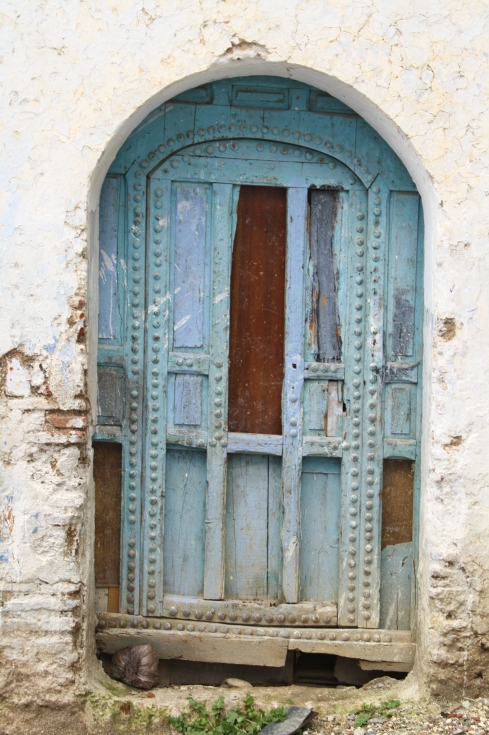
Christmas dinner was delicious couscous with sweet onions, and we celebrated with a bottle of wine we brought from Tangier for the occasion.

The next day, we set off for our last real stop in Morocco, Marrakesh. To get to the train that would take us there, we had to take two taxis from Chefchaoen to a little town called Souq al-Arbaa, literally named Wednesday Market, after the day of the week they hold their market. We started off haggling with the taxi drivers like we would normally do in Egypt, having heard that 20 dirham per person was the reasonable price, but they laughed us off when we tried to pay 80 for four. No no, they told us, this is a Grand Taxi. Six passengers. If you want to go now with just four, you’re going to have to pay for the whole six seats. Otherwise, we can wait for six. We stared incredulously at them, and the four-door, 5-seat sedans in front of us. Look, we’re not about to get conned here. There are four seats in these cars, see? But silly us, that’s not the way things work in Morocco. In Morocco that is a seven-person vehicle. And if you want to go with just the driver and four of you, you’re going to have to subsidize those other two non-existent seats. So we did end up paying a little bit more for those two extra invisible passengers for the first taxi, but for the second leg of the journey we were joined by two men who both sat in the front seat while the four of us crowded into the back.
We finally made it to Marrakesh, after a packed train ride that left Alberto and I seatless for a while before other passengers got off the train, sitting on our bags in the narrow hall of the train, lined with people. After an incredible night of sleep, we set off to explore! Whoever wrote our guidebook must have absolutely loved Marrakesh, proclaiming “the best street markets in the region” “most perfect minaret in North Africa” and “one of the best nightly street festivals in the world.” The book was right! Marrakesh was one of the coolest places I’ve ever been. We spent hours and hours wandering around the passageways of the souks, dodging speeding mopeds and big carts fullshopping around and haggling for teapots, leather, spices, and pottery, and marveling at the sheer quantity of stuff, and variety of colors and smells contained in the miles of alleys and twists and turns of the souk.

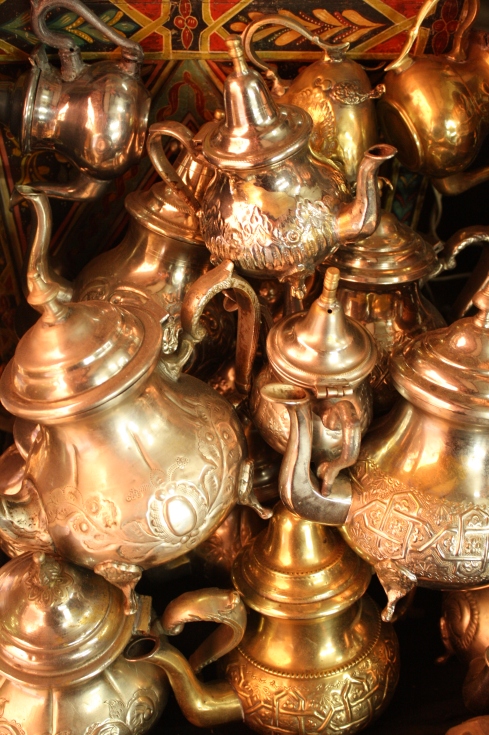
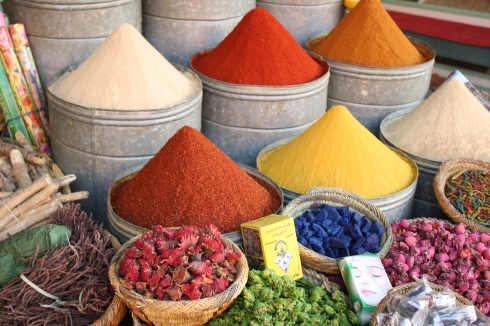
I’m not sure whether I was over-influenced by the book’s claims, but the minaret of the al-Kutubiya mosque did seem pretty perfect.
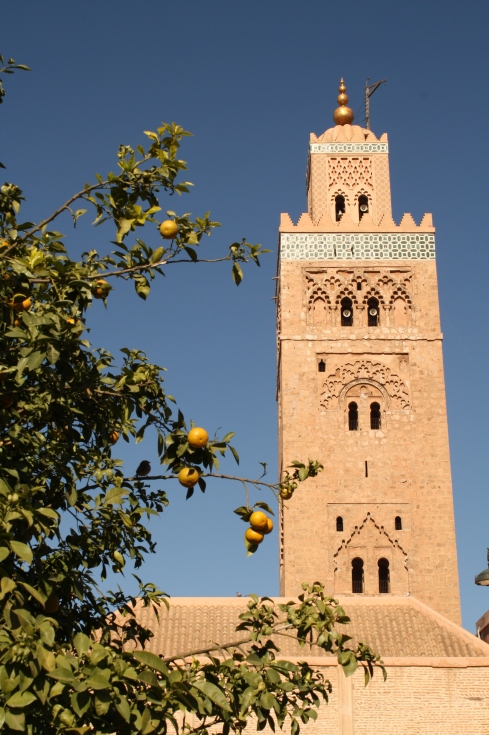
Every night, the central square of the old city, called the Gathering of Artists, turned into an incredible festival. Groups of people gathered around to listen to storytellers, snake charmers, and musicians and other street performers, while around them hundreds of stalls opened their doors for people to sit down and have a whole meal cooked in front of them, or to sit down for just a bowl of lentils, bread and a cup of tea. Other stalls squeezed grapefruit and orange juice, or served fragrant ginseng tea with strong ginger cake, and still others sold sheep’s head or steaming bowls of snails.
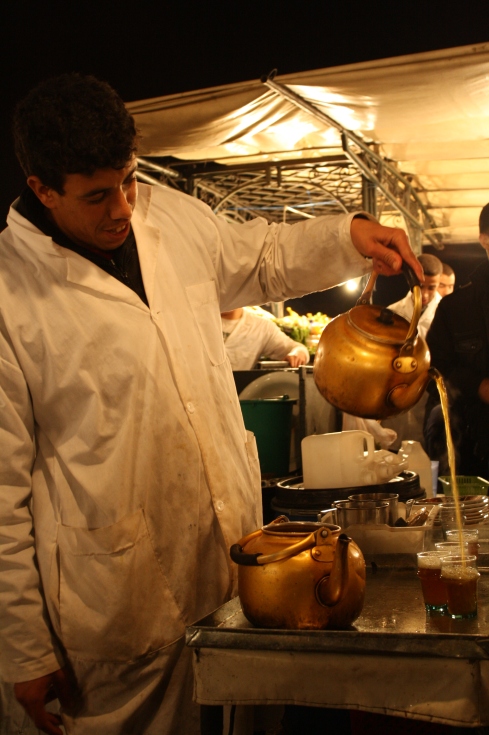
Marrakesh was awesome, but wore us out! After a few days, we were all catching colds or tummies hurting from the strange food. We were ready for Spain like no other. A flight mix-up, late plane, lots of hours in the airport, and one short flight later, we were in the land of all things haram… freely-flowing beer and wine, women wearing tights and skirts in European fashion, and so much HAM! I hadn’t realized that Spain was famous for its many ways of cooking pig, but it was fun to be able to order a ham and cheese sandwich on a croissant and a beer at the counter of a restaurant literally called Museo de Jamon, Museum of Ham, for 2 euro! In one 24-hour period, we literally were there 3 times. YUM! We felt as though we were living like kings in what our guidebook called a “fine, but drab” hostel, with toasty heating and showers that were always hot. And tap water that you can drink!
We spent our days walking around, looking at the grand old plazas and palaces, looking at awesome Spanish paintings at El Prado art museum, people-watching, and stopping for a beer or coffee when we were chilly. At night we splurged on great food and wine, and enjoyed being in a city decorated for Christmas with lights and trees everywhere!

On New Years eve we bar-hopped, bought crazy colorful wigs, and stood in Puerta de Sol square with the rest of Madrid, and counted down to midnight! At the toll of the bell we ate 12 grapes as per Spanish tradition, to bring good luck for each month of the new year.
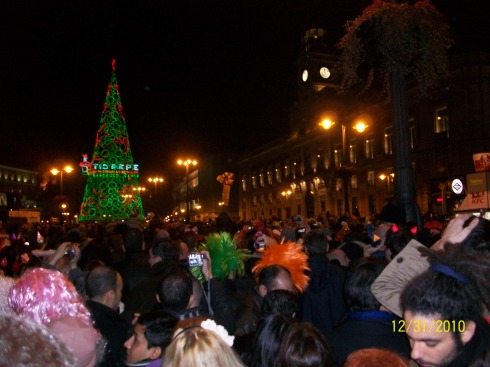
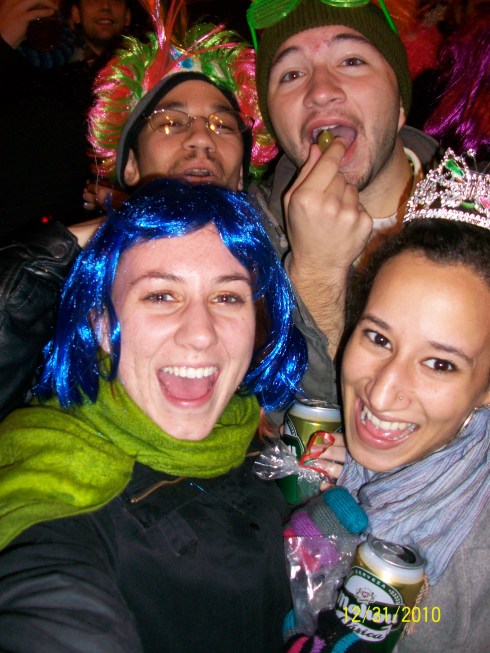
Our last night in Spain, we managed to get tickets one of the best jazz clubs in the world, and sat with our coffees and beers, listening to amazing music, and wondering why this atmosphere was so specific to the West, and so absent from Egyptian and Moroccan society.
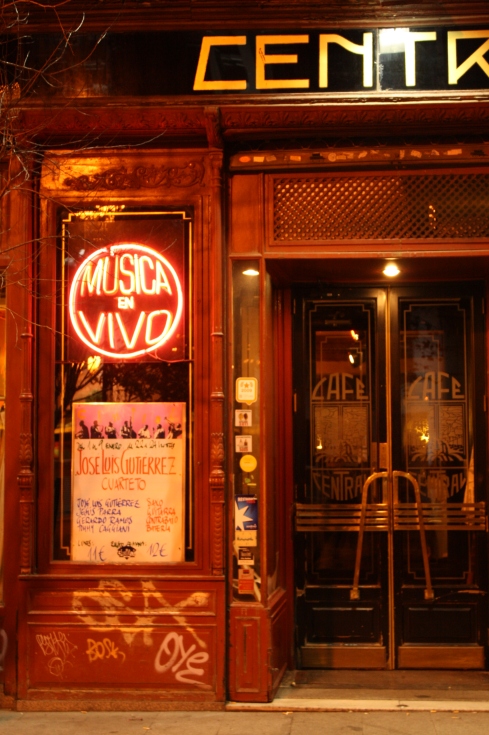
After a day of travelling back to Morocco through Fez, and then back to Egypt through Casablanca, it felt good to be back home. Well, home away from home. What an adventure! What an awesome break from school and daily life in Alexandria. But so nice to be back where we can understand the language and be understood, at least most of the time, back to our own beds and apartments, and re-motivated to press through these last three tough weeks to the end of our first semester, and halfway through the year!
Tags: adventures, arabic, celebrating, flagship, food, friends, haramness, holidays, meeting people, morocco, spain, traveling

